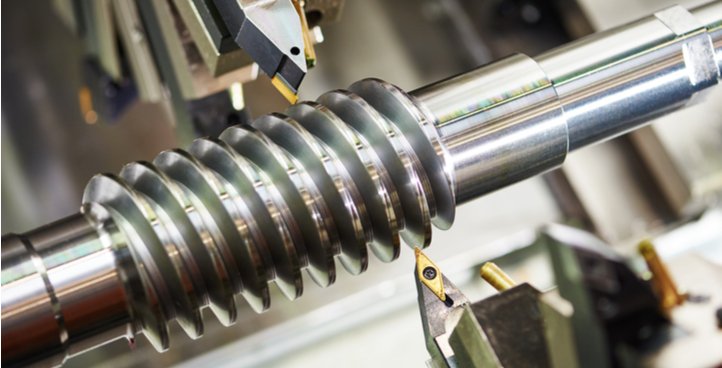If you’re working with CNC machining — whether you’re prototyping a new product or producing end-use parts — one of the most important decisions you’ll face is: what material should I use?
The answer isn’t always obvious. It depends on how your part needs to perform, what conditions it will face, and how much you’re willing to spend. CNC machining supports a wide range of materials, from lightweight plastics to ultra-tough metals. In this article, let’s walk through the most common options — and why they might (or might not) be the right fit for your project.
🧱 Metals: Strong, Reliable, and Built to Last
Aluminum
Aluminum is a go-to for many CNC projects — and it’s easy to see why. It’s lightweight, resistant to corrosion, and machines beautifully. It’s often used in automotive parts, aerospace components, and even consumer electronics. If you need something strong but don’t want to add too much weight, aluminum is a solid choice.
Common grades: 6061 (versatile), 7075 (stronger), 2024 (great for aerospace)
Stainless Steel
Need something tougher? Stainless steel brings strength and corrosion resistance to the table. It’s a bit harder to machine than aluminum, but it holds up in rough environments — making it ideal for medical devices, kitchen equipment, or industrial tools.
Common grades: 304, 316 (for corrosion resistance), 303 (for easier machining)
Brass
Brass might not be as flashy as steel or aluminum, but it has its perks. It’s super easy to machine and gives parts a clean, attractive finish. You’ll see it used in valves, fittings, and even musical instruments.
Titanium
Titanium is the high-performance option. It’s strong, lightweight, and holds up against heat and corrosion — but it’s also one of the trickiest materials to machine (and it doesn’t come cheap). You’ll often find it in aerospace parts and medical implants.
🧪 Plastics: Flexible, Lightweight, and Cost-Effective
Don’t overlook plastics — CNC machining isn’t just for metals. Plastics are great for prototyping and for parts that don’t need to take a beating.
ABS
This is a common plastic used in consumer products. It’s tough, inexpensive, and easy to machine. If you’ve ever held a remote control or toy, you’ve probably touched ABS.
Delrin (POM)
Delrin is a type of acetal plastic that’s slick, strong, and dimensionally stable. It’s often used for gears, bearings, and moving parts that need to slide smoothly.
Nylon
Nylon is strong, wear-resistant, and handles friction well. It’s used in mechanical components, automotive parts, and all sorts of consumer products.
PTFE (Teflon)
You know Teflon from nonstick pans — but it’s also great for CNC parts that need chemical resistance and low friction. Think lab equipment or food-safe parts.
⚙️ Specialty Materials and Composites
Need something more specific? CNC machines can also work with composite materials and specialty plastics. These aren’t as common, but they’re powerful in the right application.
- Carbon Fiber Composites: Extremely lightweight and strong, perfect for aerospace and high-performance designs.
- G10/FR4: Often used in electrical insulation or circuit boards.
These materials can be more expensive and require extra care during machining, but they can deliver incredible performance when needed.
🤔 How to Choose the Right Material
Still not sure which material to pick? Here are a few quick questions to help guide your choice:
- What will the part be used for? (Structural, aesthetic, mechanical?)
- Will it face heat, stress, or chemicals?
- Is weight a factor?
- What’s your budget?
- Do you need a prototype, or is this the final product?
There’s no one-size-fits-all answer — but understanding the strengths and weaknesses of each material can help you make an informed decision.
🧩 Final Thoughts
CNC machining gives you a ton of flexibility when it comes to materials — and that’s one of its biggest strengths. From aircraft-grade aluminum to engineering plastics, there’s almost always a material that fits your specific need.
If you’re working with a CNC service provider, don’t hesitate to ask them for guidance. They’ll often know which material will perform best for your part, and they can help you avoid costly mistakes.
At the end of the day, the right material is the one that gets the job done — efficiently, reliably, and within budget.


